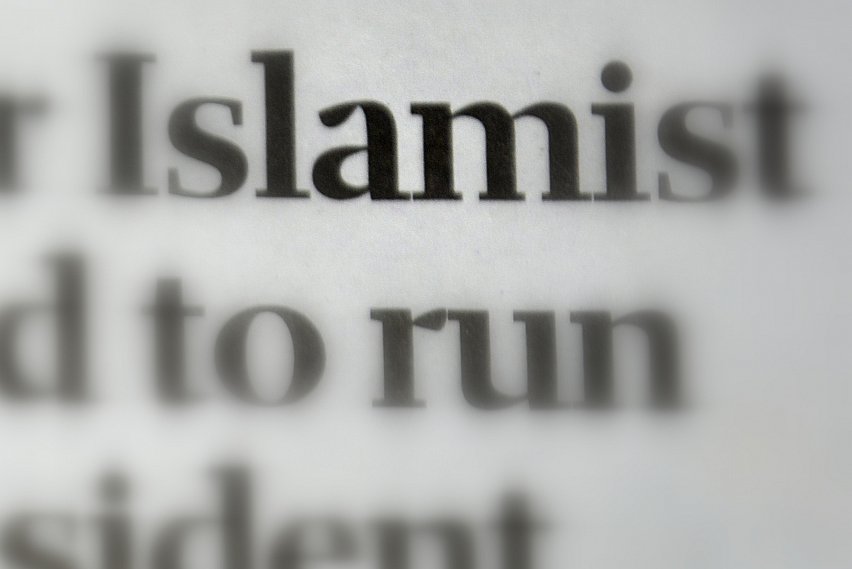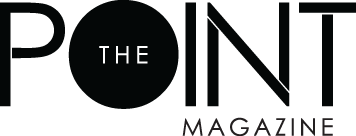A contest of words in the context of Islam
Islamist: “An advocate or supporter of a political movement that favors reordering government and society in accordance with laws prescribed by Islam. Do not use as a synonym for Islamic fighters, militants, extremists or radicals, who may or may not be Islamists. Where possible, be specific and use the name of militant affiliations: al-Qaida-linked, Hezbollah, Taliban, etc. Those who view the Quran as a political model encompass a wide range of Muslims, from mainstream politicians to militants known as jihadi.”
Such is the recent revision made to the Associated Press Stylebook, a guideline that assists thousands of news sources across the United States, following the advocacy of the Council on American-Islamic Relations.
The Associated Press is an American international news wire service whose articles are published by media outlets around the world.
In Australia, lobby group Just Media Advocacy (JMA) monitors news reports and works to avoid misrepresentations and vilification of cultural and religious minority groups in the media.
“JMA’s advocacy of the Australian media is ‘to promote social cohesion and community good by enhancing the accuracy and responsibility of media reporting’,” said the group’s director, Dr Zachariah Matthews.
“In particular, we promote the Australian Press Council's guideline which advises 'newspapers and magazines to be careful about using in their headlines terms for religious or ethnic groups that could imply that the group as a whole was responsible for the actions of a minority among that group’. It all too often occurs with Muslims that the actions of a few are used to tarnish the whole [community].”
“The impact on Australians of Muslim faith is therefore continued stereotyping and vilification causing hurt and offense.”
– Dr Zachariah Matthews, from Just Media Advocacy, said of the use of the word 'Islamist'
Dr Matthews said that the expression ‘Islamist’ has replaced the problematic term ‘fundamentalist’, as its traditional definition now blurs to commonly label the Muslim faith as one of violence and extremism.
“Unfortunately the use of the term ‘Islamist’ seems to be exclusive to the Muslim faith – for example, ‘Christianist’ is not used,” he said.
“The impact on Australians of Muslim faith is therefore continued stereotyping and vilification causing hurt and offense.”
The change - which aims to break the association of the term ‘Islamist’ from negative connotations with ‘Islamic fighters, militants, extremists or radicals, who may or may not be Islamists’ - followed lobbying from the Council on American-Islamic Relations (CAIR), a Muslim civil liberties advocacy organisation based on Capitol Hill in Washington.
The Council had complained that the AP\'s old definition of ‘Islamist’ - a ‘supporter of government in accord with the laws of Islam [and] who view the Quran as a political model’ -had become shorthand for extremist Muslim.
The change was commended by CAIR, which said of AP\'s decision in a statement: “We believe this revision is a step in the right direction and will result in fewer negative generalisations in coverage of issues related to Islam and Muslims,\" Ibrahim Hooper, the National Communications Director for the group said. “The key issue with the term \'Islamist\' is not its continued use; the issue is its use almost exclusively as an ill-defined pejorative.”
Associated Press has also recently dropped the expression ‘illegal immigrant’ from its Stylebook.
Its decision on both counts has been criticised, with one website describing the changes as “the language police … getting crazy”.
It is not just the language used, but the relevance of its application that is of concern to groups such as JMA, which also monitors the appropriateness of stating religious affiliation in a news story.
“Occasionally we have determined that the mention of a person’s religious background was not relevant to the information reported on,” said Dr Matthews.
“We call for the responsible and accurate use of terms.”
The term ‘jihadist’ is another controversial word.
“The immediate impression given to non-Muslims is that the violence perpetrated is religiously sanctioned by authority. It is therefore often misused to conflate terrorism with Islamic teachings”, Dr Matthews said.
This is a dilemma for many of those who work in the news business when individuals or groups use such descriptions to describe themselves or their own actions.
He referenced a statement made by the head of the White House homeland security office, John Brennan, in 2009, which expressed that the word ‘jihadist’ “risks giving these murderers the religious legitimacy they desperately seek but in no way deserve”.
Mr Brennan continued: “Worse, it risks reinforcing the idea that the United States is somehow at war with Islam itself.”
While American news outlets increasingly recognise the impact of media language used in the context of Islam, some of their counterparts in Australia continue to use politically provocative terms that establish negative associations with Islam, particularly during recent events in Kenya, Egypt and Nigeria.
During last month’s terrorist attack on a shopping centre in Kenya, many Australian reports across all media platforms stated that “a Somali Islamist group has claimed responsibility”. Asked about the use of the term ‘Islamist’ in such reports, Dr Zachariah responded: “The more accurate terminology would have been ‘a Somali militant group has claimed responsibility’ or ‘a Somali Muslim militant group has claimed responsibility’.”
According to a study by the Monash University School of Political and Social Inquiry in 2005 on The Representation of Islam and Muslims in the Media, Islam’s diverse nature has been homogenised by media in Western cultures.
The study found that individuals in Western societies commonly familiarise themselves with the Muslim faith through socially constructive depictions found in the news.
“This means that recurring language used to describe Islam and Muslims can come to be representative of all Muslims and Islam as a religion,” the study explained.
As a media contest of words fires up, more groups and individuals are taking responsibility for interrupting the momentum of potential misrepresentation.
“Definitely more could and should be done to engage with the media in a more proactive rather than reactive manner,” Dr Matthews said.
“The media plays a vital role in society and could serve to enhance or undermine social cohesion depending on how it operates.”
In Australia, government, media and community leaders met in July in Sydney at the invitation of the then Attorney-General, Mark Dreyfus, QC, to discuss the use of language and images in the context of terrorism and violent extremism, and its impact on Australian communities.
While there were different views among the representatives, the need for accuracy and consistency in the language used when discussing terrorism or any form of violent extremism was recognised as a key issue.
“Language is a powerful tool, and its use when describing terrorism and related activities should be carefully considered,” Mr Dreyfus told the audience.
“We can help challenge extremist narratives by understanding the role of language and by exploring the ways in which we inadvertently play into the hands of extremists by our own use of language. Public language that is divisive supports the ‘us’ and ‘them’ notions that extremists promote.”
The growing number of websites and social media activity promoting extremist messages was also highlighted as an issue that may impact on disaffected individuals.
Across the world, authorities are also worried that extremists are transforming their online presence into online media units that function in a similar way to mainstream online news service, reporting on group activities, providing news updates, pictures and interviews.
The Point
A major international news service has revised the use of the word 'Islamist'
Author Note
<p>Contributor: Nadia Jamal</p>






